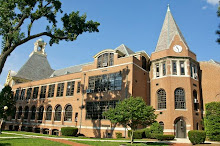I ran across this fascinating essay by John Goodlad, regarding the state of our education system and the time (now) for us (all of us) to make some real changes. You can click here to read the entire essay, but I'm going to extract the heart of the essay here:
[Begin quote...]
Unless we get above the endless bickering that has kept our system of schooling stranded in the deep structure that hardened into place many decades ago, we will find ourselves only tinkering with school reform one more time. Enough already! There are children here.
There are some obvious improvements to be made that will arouse little controversy, such as upgrading the infrastructure of schooling and providing high-level equity in instructional and curricular learning and teaching resources. And there is a rich array of ideas that have been briefly implemented in innovative school programs that were not brought to scale and sustained. Their stories are readily accessible but have been virtually ignored by policymakers, even by federally appointed committees such as the National Commission on Excellence in Education that in 1983 produced the influential report A Nation at Risk. In all probability, some of these will be rediscovered, funded, not brought to scale, and fade, largely because of the ideological differences embedded in our multilayered system of schooling.
Over a period of sixty years, I have taught in a one-room school and school for delinquent boys, taught in every grade from the first through graduate school, been a dean for sixteen years, and studied in depth and breadth educational change, schooling, the education of educators, and more. I now look back in wonderment, anger, and near-despair at the stark reality of we the people scarcely murmuring for eight years over the imposition of the No Child Left Behind Act on our PUBLIC SCHOOLS. No powerful intellect is required for coming to the conclusion that we the people are grossly undereducated in what education is and negligent in the informed care of our irreplaceable asset, the public school. Where art thou, Horace Mann, arguably its founder, who proclaimed over 150 years ago that “the public school is the greatest discovery made by man”?
I have concluded that we will never have the schools our democracy requires until their well-being is a major priority of local communities. And we will not have them until policymakers, business roundtables, educational organizations, teacher-preparing institutions, and community leaders agree on what all schools are for. The challenges are enormous and, unless we take them seriously and begin the necessary learning now, our century-old tinkering with schooling will continue.
These are not tasks to delegate to national commissions. They are for all of us—the “yes we can” people, the young and the old, and everyone in between.
[End Quote]
Something to think about. What do you think schools are for?
Welcome!
Welcome to Laurie Goodman's blog. I use this space to share news and opinions about education and schools in Ridgewood, the state of New Jersey and the nation, in addition to other issues I'm personally interested in. I invite you to share your thoughts, feelings, questions or opinions, too, by posting comments on any blog entry. Please observe basic courtesy -- keep your comments focused on issues, no personal attacks or bullying, please. Contact me directly at: lauriegood@mac.com
Subscribe to:
Post Comments (Atom)






2 comments:
I'll bite. I think first and foremost, schools are there to educate...reading, writing, arithmetic, history, science, etc. Second, to form well-rounded, responsible citizens who understand and contribute to our culture.
Schools are for educating young people with the knowledge our society has acquired, so they can go forward and add to that knowledge and use that knowledge for the betterment of the world. Schools K-12 are for teaching what others have thought before us and encouraging new thoughts.
The reality is, they are also "daycare" to keep young people occupied.
Post a Comment